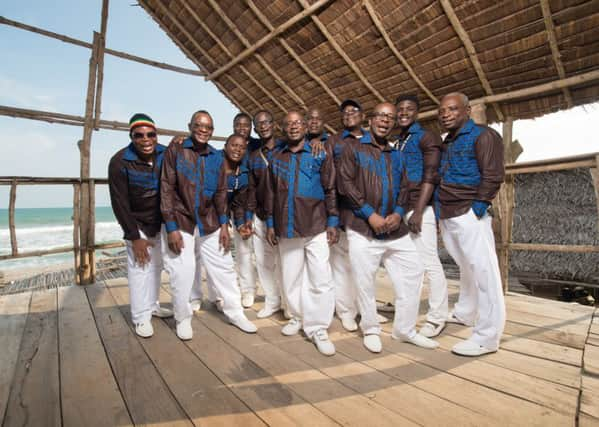Album review: African legends' sunny sounds


As nations across the region became independent in the 1960s and ‘70s the area enjoyed a musical golden age as bands were formed to explore their own heritage and history while also pushing the boundaries.
The tiny country of Benin ensured it was not outshone by its bigger neighbours by spawning the Orchestre Poly-Rythmo de Cotonou, given its name on account of the many different styles the band could play.
Advertisement
Hide AdAdvertisement
Hide AdFormed in 1968 the group released a slew of albums and toured all over West Africa showcasing its sound which blended traditional rhythms and music from Benin with a dizzying array of outside influences.
Singing largely in the Fon language, their songs ranged from the homegrown vodoun roots music of Benin to elements of Ghanaian highlife, Congolese rumba, Latin styles and soul and funk from America.
Following the death of former leader Mélomé Clément in 2012, just a year after the band broke a 20-year silence by releasing the album Cotonou Club, three of the key remaining musicians decided they had to keep the Poly-Rythmo flame alive.
Four years down the line the result is Madjafalao, with singers Vincent Ahehehinnou and Loko Pierre and bassist Gustave Bentho gathering around them a group of performers to do justice to the group’s legacy under the name Le Tout-Puissant Orchestre Poly-Rythmo.
Advertisement
Hide AdAdvertisement
Hide AdThe seven minutes of the opening title track, which is probably the highlight of the album, sets out the stall in suitably impressive fashion for a group styling themselves as “all-powerful”.
Opening with a lively shouted: “One, two!” the band immediately lopes into a distinctive groove that brings to mind what a New Orleans jazz band might sound like if they had ended up in West Africa before settling into a smooth Afro-Latin sound.
Lead vocalists trade call-and-response lines with the backing singers, the repeated words and phrases of the accompanists perhaps reminding listeners of Nigerian firebrand Fela Kuti’s group Africa 70, which the younger Poly-Rythmo played extensively with.
Trumpets and saxophones provide melodic lines and songs are also flecked by gently-woven bursts of electric guitar and layers of organs and keyboards which are by turns jazzy and gospelly.
Advertisement
Hide AdAdvertisement
Hide AdMore extensive saxophone solos float free on the opening track and Omonyi while the group shows off its sunniest disposition on the exuberant Heritage and closer Baba Djide opens with a guitar riff close to an African take on US radio rock.
The Latin-influenced tracks are unhurried, sensual and immediately appealing, bringing to mind a world of elegant nightclubs, long and warm evenings under starry skies and clinking glasses, while Ouesse sees the band dig out a rootsier feel with insistent vocals being sung over a peculiar but catchy rhythm that is somewhere between walking and driving.
Brilliant bands from this area have pushed the bar very high, but this album is a jewel of sunshine to brighten up the darkest winter nights.
Madjafalao, by Le Tout-Puissant Orchestre Poly-Rythmo, is out now. For more information visit www.polyrythmo.com